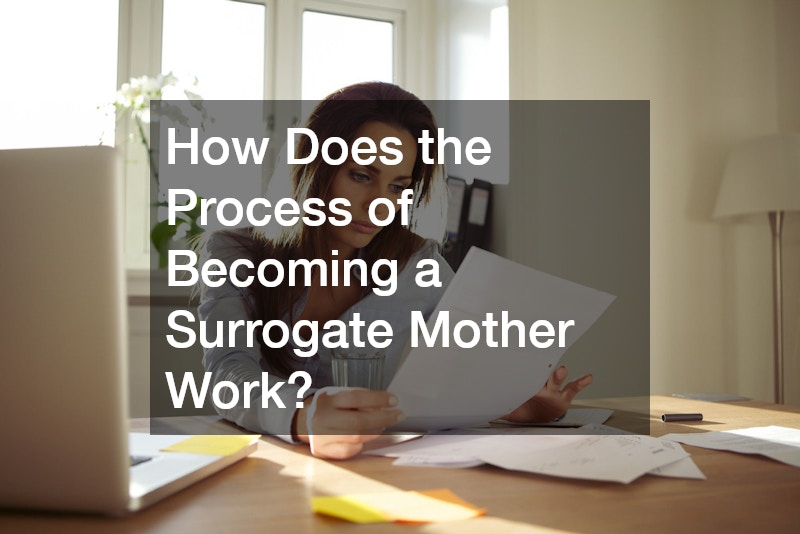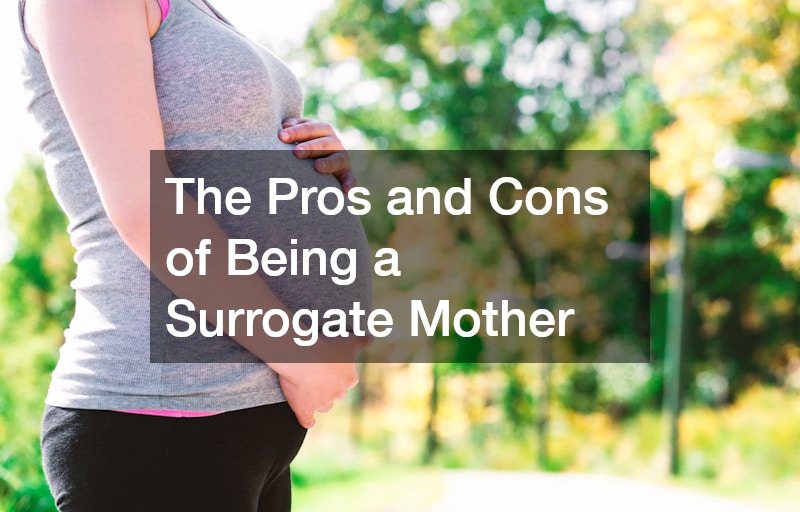Surrogacy has become an increasingly popular option for couples and individuals seeking to build a family. In recent years, reproductive technology advancements and societal perceptions have made the process more accessible to a wider audience. Yet, the decision to participate in surrogacy, whether as a surrogate or intended parent, involves a multitude of considerations, and there are many pros and cons of being a surrogate mother.
For prospective surrogate mothers, the journey can be rewarding and challenging. While the opportunity to help create life can be fulfilling, it is essential to understand the complexities involved, including the emotional, physical, and legal aspects. This article delves into the motivations that drive women to become surrogates, examines the pros and cons of being a surrogate mother, and explores the intricate dynamics of the surrogacy process.
In doing so, we will provide a comprehensive guide to the pros and cons of being a surrogate mother, addressing financial implications, ethical concerns, and the personal impact on surrogate mothers. From the practical considerations to the profound emotional experiences, surrogacy is a multifaceted endeavor. By the end of this article, readers will have a clearer understanding of what surrogacy entails, offering insights into both the sharing of joy and the handling of complexities involved in this incredible life journey.
What Motivates Women to Become Surrogate Mothers?

Women choose to become surrogate mothers for a variety of reasons, often stemming from a deep desire to help others achieve their dream of parenthood. Some surrogates are motivated by the profound satisfaction from the knowledge that they are creating families. The sense of fulfillment derived from helping individuals and couples can be immensely rewarding, especially when they are using a pregnancy surrogate because they are unable to conceive themselves naturally.
Financial incentives also play a significant role, as becoming a surrogate mother offers monetary compensation. This compensation can be impactful, especially for those seeking financial stability or personal goals. However, it’s vital to understand that while financial gains are an aspect, altruistic goals usually supplement the motivation.
Another common motivator is the positive experience of previous pregnancies. Women who have enjoyed their past pregnancies may choose to become surrogate mothers to enjoy that experience once more. They often feel capable and equipped to handle the physical and emotional challenges involved, viewing the process as an opportunity to make a meaningful contribution to someone else’s life.
Pros and Cons of Being a Surrogate Mother
To understand the pros and cons of being a surrogate mother, it’s crucial to consider both the rewarding and challenging aspects of the journey. One of the significant advantages is the profound contribution to someone’s life, as it allows individuals to experience the unparalleled joy of parenthood. Sharing happiness can create enduring relationships and meaningful gratitude between the surrogate and the intended parents.
On the downside, surrogates face numerous physical demands and stressors associated with pregnancy. The medical procedures, possible side effects, and lifestyle adjustments can prove challenging over the surrogate pregnancy term. Additionally, surrogates often face emotional complexities, requiring them to maintain clear boundaries and manage any attachment to the child they carry.
Financial incentives are part of both the pros and cons of being a surrogate mother. While the compensation can be beneficial, the money can sometimes create complicated dynamics, introducing expectations and pressures. Moreover, a surrogate mother must also consider potential legal implications and navigate family law with the assistance of a child custody lawyer if disputes arise.
How Does the Process of Becoming a Surrogate Mother Work?

Something that can be part of the pros and cons of being a surrogate mother involves the overall health of the surrogate. The process of becoming a surrogate mother starts with a thorough screening to ensure the candidate’s physical and psychological suitability. Medical examinations filter out health issues that might present complications during pregnancy, while psychological evaluations gauge emotional readiness and resilience. This screening is fundamental to protect both the surrogate and the intended parents.
Following the screening, a surrogate is matched with the intended parents, usually through an agency specializing in surrogacy. Legal agreements are also finalized at this stage, covering the relationship between surrogates and parents, and delineating the responsibilities of each party. Family law often governs these arrangements, highlighting the role of a child custody lawyer.
Once legal preparations are in place, medical procedures, often involving assisted reproductive technologies such as IVF, are conducted to achieve pregnancy. Throughout this stage, surrogates receive comprehensive healthcare, including transportation medicine to ensure safe travels to and from medical facilities during the duration of their pregnancy.
What are the Emotional Pros and Cons for Surrogate Mothers?
The emotional landscape of a surrogate mother can be complex, defined by both joy and vulnerability. Surrogacy offers emotional rewards as surrogates witness the intended parents’ joy upon the birth of their child, which can be profoundly fulfilling. The sense of accomplishment and purpose derived from this process fosters a positive self-image and emotional well-being.
Nevertheless, surrogates have to confront significant emotional challenges. Separation after birth can be difficult, even with clear boundaries in place. It’s not uncommon for surrogate mothers to experience an attachment to the baby, leading to emotional discomfort and requiring strategies to maintain emotional health, such as depression therapy.
Support systems, emotional readiness, and counseling resources are crucial in managing such challenges. Surrogates are encouraged to explore mental health support, which can be beneficial for addressing emotional complexities. Establishing solid emotional support networks ensures surrogates have access to the care and reassurance needed throughout the surrogacy process. Emotions throughout the process for everyone involved can be an important determining factor when considering the pros and cons of being a surrogate mother.
What Physical Challenges Do Surrogate Mothers Face?

Physical demands are intrinsic to the experience of being a surrogate mother, with standard pregnancy-related challenges compounded by surrogacy’s unique aspects. Surrogates might experience complications specific to gestational surrogacy procedures, such as reactions to fertility medications or discomfort from embryo transfer. Such demands necessitate continuous medical supervision to ensure safety and well-being.
The consensus is that good prenatal care, including regular health check-ups and adherence to a healthy lifestyle, is fundamental. Using maternity support hose, massage therapy, and a balanced diet can help manage discomfort and promote health throughout the pregnancy. Committing to these practices allows for more manageable pregnancies and recuperation.
Postpartum recovery can also challenge surrogate mothers physically, requiring attention and care. Once the baby is born, surrogates should ensure comprehensive recovery protocols, including wellness checks and pampering like a mommy makeover. These practices ensure recovery and a smoother transition back to everyday life.
How is Surrogacy Viewed Legally?
When considering the pros and cons of being a surrogate mother, the location of the individuals involved makes a large impact. Legal perspectives on surrogacy vary considerably across jurisdictions, with laws evolving to address new ethical and social considerations. Surrogacy may be encouraged, regulated, discouraged, or prohibited, influencing the legal process for prospective surrogate mothers and intended parents. Essential legal agreements are crafted early to ensure clarity and protect the rights of all involved.
Surrogates often have to navigate complex family law matters, sometimes resulting in the necessity of a child custody lawyer during disputes or legal proceedings. The lawyer’s role can vary from ensuring that custody agreements are adhered to, to representing the surrogate’s interests in legal proceedings. Legal support also helps to prepare for inadvertent complications that might arise during or after pregnancy.
Understanding surrogacy’s legal landscape is crucial for ensuring equitable and harmonious agreements between parties. Protective legislation and coherent agreements contribute significantly to successful surrogacy journeys, reinforcing the surrogate mother’s legal footing and ensuring the fulfillment of promises made during the surrogacy agreement.
What are the Financial Benefits and Implications?
The financial benefits of becoming a surrogate mother serve as a major incentive. Surrogates receive compensation that assists with personal financial goals, debt reduction, or future savings. Though compensation varies, it remains a tangible benefit that provides significant financial relief to many surrogates.
The financial implications extend beyond compensation. Surrogates must budget for any unforeseen medical expenses despite comprehensive medical insurance packages offered by most arrangements. Proper understanding of these financial dynamics ensures surrogates are well-prepared for this part of the process.
Additionally, financial stability allows surrogate mothers to focus on providing top-notch maternal services, benefiting the intended parents and the baby’s wellbeing. It also helps manage expectations and pressures from the compensation, leading to a smoother and more focused surrogacy journey.
How Does Surrogacy Affect Family Dynamics?

The decision to be a surrogate mother impacts not only the surrogate but also her immediate family. Families of surrogate mothers must adjust to the surrogate’s unique responsibilities and time commitments. It requires understanding and support from family members who share the surrogate’s dedication to this life-creating process.
Communication and shared responsibilities are key to maintaining family harmony during surrogacy. Child care, household management, and emotional support involve all family members in ongoing dialogue about expectations, needs, and shared roles. This fosters an environment that supports the surrogate’s journey and well-being.
On a positive note, this experience often strengthens family bonds, promoting unity and cooperation among family members. Families witness firsthand the impact and fulfillment of the surrogacy process, broadening perspectives and enhancing appreciation for the supportive community the surrogate’s role requires.
What are the Ethical Concerns Surrounding Surrogacy?
Ethical considerations in surrogacy often focus on the implications of commercialization and bodily autonomy. Critics raise concerns about the transactional nature of surrogacy, arguing that it commodifies the body by putting a price tag on life creation. Conversely, proponents argue that surrogacy empowers women by offering them choices and control over their reproductive abilities.
The ethical discourse also explores potential exploitation, where economically disadvantaged women might resort to surrogacy purely for financial gain. To address these issues, thorough assessments and regulatory standards are established to protect surrogate mothers and ensure ethical practices throughout surrogacy arrangements.
While debates persist, the ethical concerns around surrogacy continue to evolve. Ethical guidelines, informed consent, and agreement transparency are essential for harmonious and just surrogacy practices. In balancing these ethical dimensions, surrogacy operations strive to respect the dignity and rights of surrogate mothers.
How Do Surrogate Mothers Balance Personal and Surrogacy Lives?
Managing the intersection of personal responsibilities and surrogacy demands awareness, planning, and support. Surrogates often must coordinate between medical appointments and family duties, requiring meticulous scheduling and prioritization. Establishing a viable routine that accommodates both personal and surrogacy-related tasks is crucial.
The balance relies heavily on the surrogate’s support system, including partners, family, and friends, who play roles in helping manage household responsibilities and child care. Relying on such support alleviates the surrogate’s burden, providing her the necessary leeway to attend to surrogacy commitments effectively.
Work-life balance strategies are also essential, allowing surrogate mothers to sustain engagement with their personal and work commitments. Through proactive management of personal and surrogacy responsibilities, surrogate mothers can maintain fulfilling participation in different aspects of their lives without compromising on care and duties.
What is the Future of Surrogacy?
Surrogacy’s future appears poised for ongoing growth and broader acceptance as technological advancements evolve. Innovations in reproductive medicine will likely contribute to safer and more efficient procedures. Such progress will help surrogacy become more accessible and seamless, with increased precision and reduced risks.
Legal frameworks surrounding surrogacy are gradually adapting to new realities, striving to create equitable rules and protections for all parties involved. With these adaptations, surrogates and intended parents can anticipate more consistent and supportive legal landscapes, potentially diminishing uncertainties that hinder the surrogacy process today.
As societal perceptions shift towards understanding and acceptance, surrogacy stands to gain broader recognition as an integral part of family-building options. Ethical considerations will also evolve, ensuring surrogacy practices are aligned with fairness, respect, and empowerment for surrogate mothers.
Engaging with the surrogacy process is a profound commitment that requires careful consideration of emotional, physical, legal, and ethical facets. For women contemplating the decision to become a surrogate mother, it is essential to weigh the pros and cons of being a surrogate mother carefully. Surrogacy is undeniably a journey with the potential for great reward but it demands dedication and resilience.
At its heart, surrogacy offers immense possibilities: the creation of families and fulfillment beyond conventional boundaries. Surrogate mothers must be prepared and supported by informed decisions and robust networks. As the landscape of surrogacy changes with societal norms and technological advancements, it heralds continued opportunities for growth and understanding.
As we move forward, it remains crucial to uphold the principles of care, respect, and dignity across all stages of surrogacy. By maintaining these values, surrogacy can remain a testament to life’s extraordinary capabilities and foster and confirm the strength and compassion inherent in shared human experiences.




